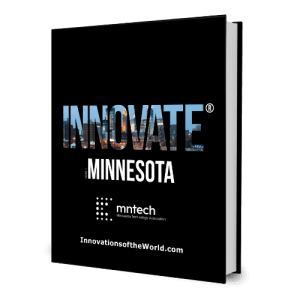Growth leaders like to talk about the concept of “hockey-sticking” – when a company’s product really catches fire in the market, and its revenue growth chart suddenly shoots upward, resembling a hockey stick. It’s a great analogy for a company from Minnesota, and it’s something Digital River knows well. From its beginnings 25 years ago giving software companies tools to sell their products online, Digital River experienced the hockey stick first-hand. Now, as a legacy ecommerce company with an eye on the future, it is poised to experience the hockey stick once again.
The key factor driving this opportunity is the speed at which change is coming to the ecommerce industry. It’s both exciting and daunting, and it is most definitely not for the faint of heart. To survive, companies must be willing to evolve to keep up with customers’ changing demands and the technology that makes them possible.
In 2019, Digital River made a major pivot from a legacy full-stack ecommerce provider to a best-of breed, API and microservices-based company providing turn-key, back-office technology solutions that plug into any ecommerce platform to enable brands to sell online, globally. It was a journey borne out of absolute necessity, as the entire ecommerce industry had shifted to modular solutions. Every industry experiences disruption that can open new possibilities just as it can close doors on others. It can be an existential crisis for a company, or an opportunity to innovate your way to long-term, sustainable growth. Digital River was at just such a crossroads when I became CEO. My background has taught me that a company’s own employees often know what needs to happen to move forward. Executing on that takes three things: owners who have the courage to make that change, a common understanding of the true economics of the business, and leadership that has the motivation to remove the roadblocks to success.
For the first, you either hope you have owners who see the value in taking a risk, or you try to convince them. If no one is willing to give up what worked in the past, but doesn’t work now, the company is at high risk of failing.
Just a Quick Note:
InnovationsOfTheWorld.com has partnered with Trade License Zone (TLZ) to support global innovators looking to expand internationally. Take advantage of the UAE’s Free Zones—enjoy streamlined setup, low corporate taxes, and a strategic gateway to the Middle East and beyond.
Get Your UAE Free Zone License Fast & Easy!Similarly, understanding the true economics of your business is a driver of innovation that can lead to a profitable path forward. If what you’re selling has become commoditized, how can you differentiate and create a value proposition that is compelling? In many cases, businesses think their markets have become commoditized simply because buying patterns have changed.
For complex products, it can be easy to lose sight of what aspects of their product the market truly values over those it doesn’t. Sometimes unbundling a product that has historically been sold as a single solution is the most innovative strategy of all. Similarly, true technological innovation is rarely about creating something completely new. It’s about seeing the one small detail others have missed and using available technology to expose it in a way others haven’t. These are the breakthroughs that create opportunities for companies to create value and grow. Aviation pioneers frequently failed because they tried to emulate the mechanics of birds flapping to achieve propulsion. Only when they focused on the subtle aspect of wing shape, were they able to generate lift, and therefore success.
Finally, the simple advice I give to leaders who are joining an organization that needs an “innovation restart” is this: Listen to the employees; they know what needs to be done. The leader’s role is not to be the innovator, but to remove the roadblocks that are stifling innovation and give the employees the tools and resources they need to be successful. It’s certainly not easy and it’s never pretty, and most businesses fail because their ownership or leadership cannot overcome the fear of losing what they’ve already got. But those that can get the opportunity to experience the most exciting and satisfying of all business outcomes: a second hockey stick.
Adam Coyle has spent over 25 years in the financial technology industry in a wide range of executive roles. Adam joined the management team at Digital River after spending three years at Siris Capital, where he was an executive partner and a member of the Digital River board.














